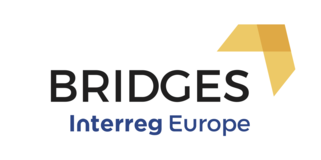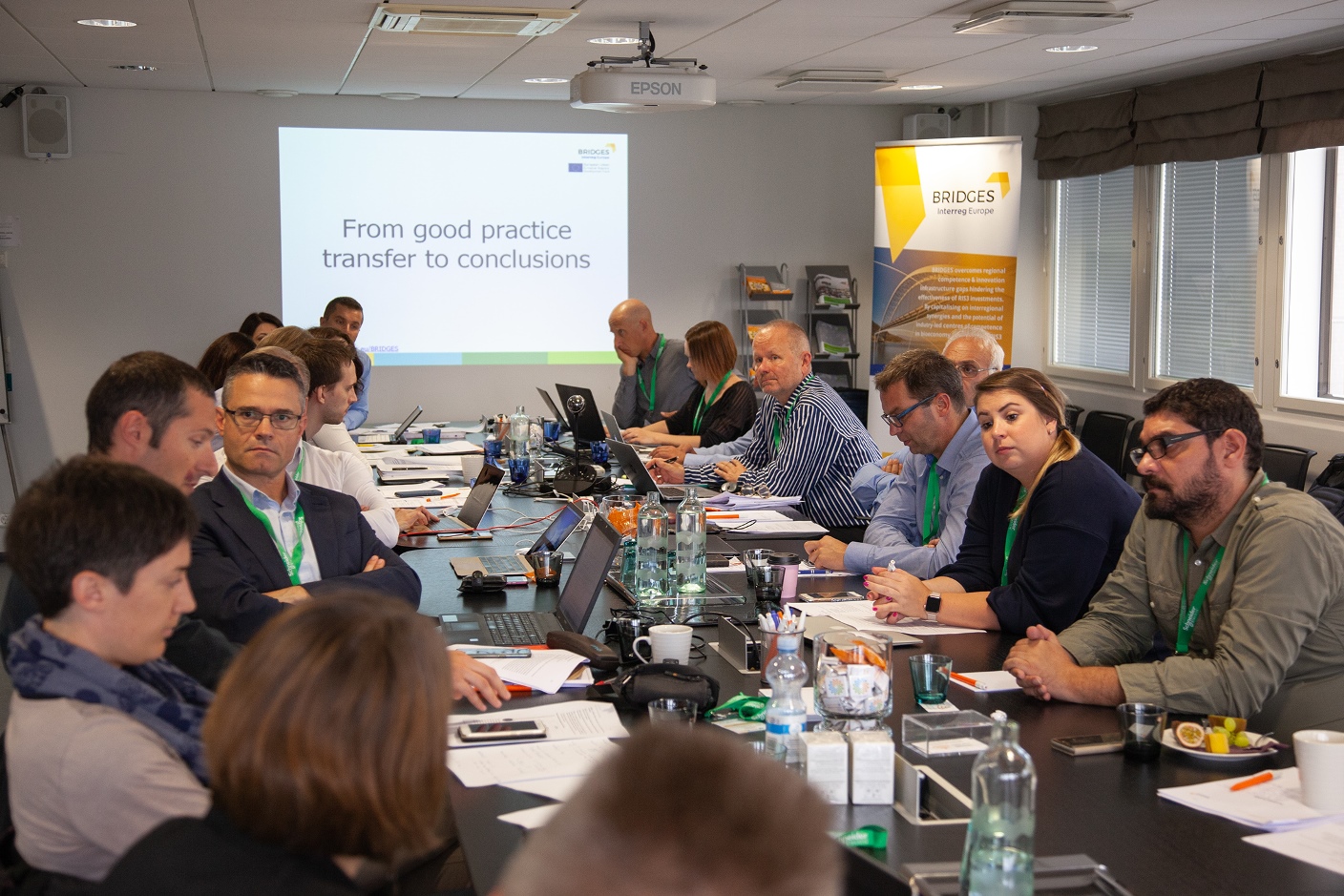The fourth interregional policy learning meeting of the BRIDGES project took place on 7 - 8 June 2017 in Helsinki, Finland. It was hosted by Helsinki Uusimaa Regional Council. The meeting was attended by all the partners, including a strong stakeholder representation.
The first day of the meeting was dedicated to the discussion of good practices (GP) and selection of GPs per partner. Partners discussed the GP capitalisation report and the individual GP contributions under three themes: industry led centres of competence – theme 1, research-to-industry innovation partnerships – theme 2, multilevel synergies – theme 3. While GP themes 1 and 3 had sufficient contributions, and were therefore mature for selecting GPs for transfer, GP theme 2 needed more inputs. It was agreed to proceed with the selection of GPs from GP theme 1, and evaluate GP themes 2 and 3 during online sessions planned for September 2017. Accordingly, the GP capitalisation report will be updated and will be available for public dissemination in October 2017.
The GP theme 1 selection was completed and we can draw some conclusions. Eight GPs have been contributed, with six of them dedicating efforts to bio-based industries. We also recognised some recurring themes: 1) information and networking functions of business & innovation intermediaries; 2) awareness raising functions; 3) concrete research-to-business methodologies and projects; these are the GPs that attracted the most transfer interest; and 4) funding & financing models for innovation agencies.

The second day of the meeting was dedicated to the opening up of the innovation maps with individual partner presentations and discussions. The innovation maps in BRIDGES are desk and field research documents building on the partner regions’ RIS3 in the following ways:
1) identification of performing businesses: within the RIS3 industries of each one of the partner regions, the innovation maps identify performing businesses that can benefit from interregional research-to-business innovation partnerships, and linking, in the process, innovation advanced with less advanced regions. This category explores the huge potential of bio-based research with matching raw materials, industrial processes & growing demand, present also within the BRIDGES partnership;
2) identification of infrastructure, methodology and process gaps in the regional innovation management systems: the gaps are grouped into eight types of ‘technological connectivities’ generally corresponding to the three GP themes and they include: industry-led centres of competence (Connectivity type 1/CT1), access to research (CT2), KET applications approaches (CT3), measures for technology readiness level (TRL) improvement and certification (CT4), regional innovation management chain (from idea to scaling up) (CT5), upstreaming and downstreaming of innovations (in the sense referred to the CPR) for constant renewal (CT6), cross – border commercialisation of research (CT7), direct research-to-business co-operations (CT8). The innovation maps indicate good experience and potential for sharing in CT1 (corresponds to GP themes 1 and 2), CT2, CT7 and CT8 (all of three of them corresponding to GP themes 2 and 3);
3) industrial modernisation needs: the innovation maps indicate, above all - especially in the case of the less advanced ones - strong industrial modernisation needs and associated methodologies. In response to these findings, we have dedicated considerable resources towards identifying, discussing and approximately agreeing with each and every regional partner suitable industrial modernisation concepts and step-by-step feasibility approaches that will lead to concrete action plans.
The fourth interregional policy learning meeting was a milestone as it marked, after 15 months of intense joint work, what we have achieved, what we have learnt and what we feel we can do.
We are happy to answer questions, discuss further, know your feedback. Please contacts us at: [email protected]
The document "BRIDGES Innovation Maps capitalisation report" here.
All deliverables from the meeting in Helsinki are available in the library



